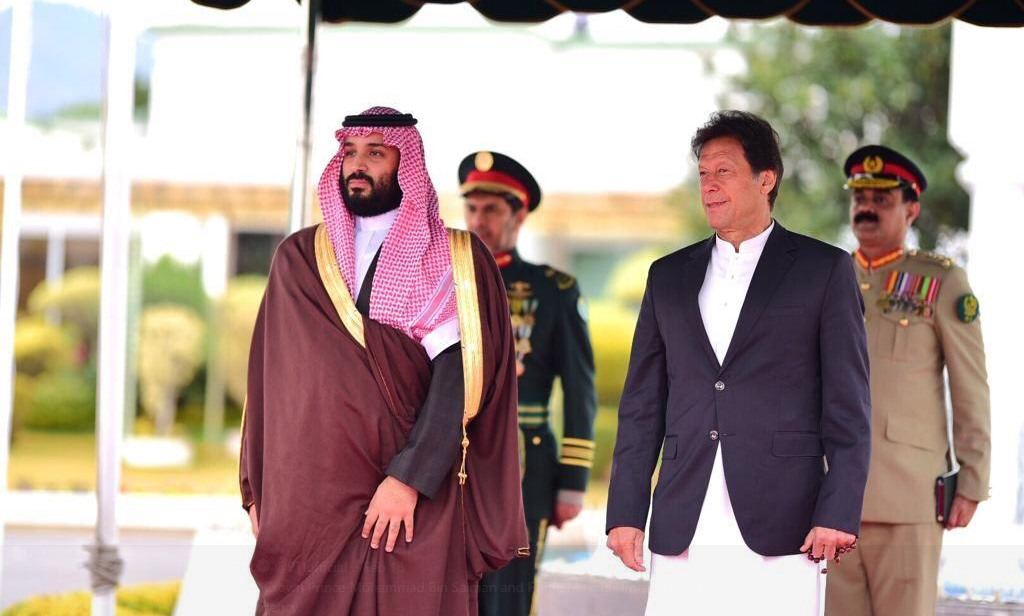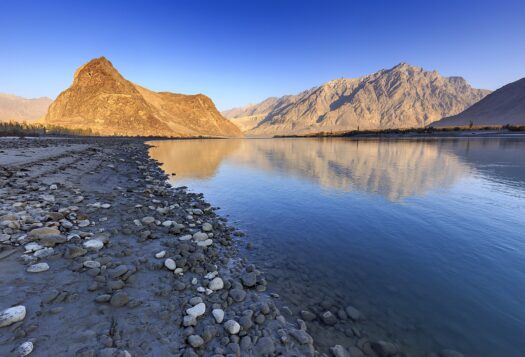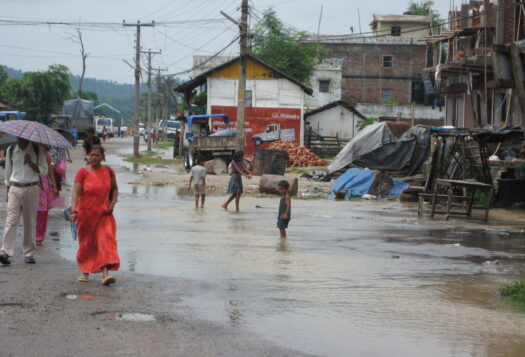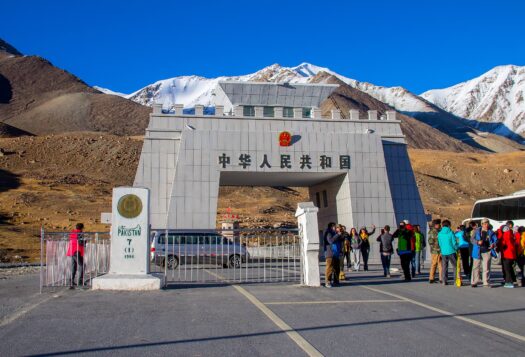
The Crown Prince of Saudi Arabia, Muhammad bin Salman (MBS), began his Asia tour on February 17th with a two-day visit to Pakistan. He was accompanied by a high-level delegation comprising members of the royal family as well as ministers and businessmen. Crown Prince Salman received a grand welcome, which reflected the close relationship between the two countries. This historic visit has several strategic, political, economic, and security dimensions which could have serious effects on regional stability. This visit is being touted by many as the Kingdom of Saudi Arabia (KSA)’s strategic eastward pivot, a significant facet of its foreign policy. Pakistan is expected to receive $21 billion USD worth of seven memorandums of understanding (MoUs) signed with KSA, which are to come to fruition in three phases over the next six years. At the behest of Prime Minister Imran Khan, MBS also announced the release of over 2,000 Pakistanis jailed in the kingdom.
The Crown Prince’s trip coincided with the Pulwama attack in India-administered Kashmir that resulted in the death of forty paramilitary forces. The attack was expected to cast a shadow on MBS’ visit, but Islamabad carefully avoided any mention of it until after the visit had been concluded despite a flurry of accusations from Delhi. Though the Saudi investment seemingly came with no strings attached, only the future will showcase the truth.
In Need of a Lifeline:Why Pakistan Needs Saudi Investment
The mere anticipation of Saudi investment has already helped deflect attention from discussion regarding Pakistan’s debt accumulation and tumultuous economy. However, Prime Minister Khan’s government still desperately needs a lifeline. In the fiscal year which ended in June 2018, its current account deficit jumped 43 percent to $18 billion and its fiscal deficit rose to 6.8 percent of GDP. This may be why a Saudi investment scheme is attractive to Pakistan. However, if Pakistan were to secure another International Monetary Fund (IMF) bailout—its thirteenth— the China-Pakistan Economic Corridor’s (CPEC) financing mechanisms would be drawn into the spotlight, something Pakistan may not want. The United States, which does not favor of CPEC, has made it clear that it will not allow IMF money to be used to repay Chinese loans acquired by Pakistan. In addition, CPEC has borne the brunt of much scrutiny from the United States and India in particular over the years. But Saudi Arabia’s investment in Pakistan will at minimum help the latter’s floundering economy. Additionally, if KSA were to join the project, it might also improve CPEC’s waning credibility as a stable investment opportunity.
The announcement of potential Saudi investment in CPEC after Imran Khan’s October 2018 visit to Saudi Arabia, where he sought Riyadh’s monetary help to sustain the foreign reserves of Pakistan. On January 15th, 2019, Saudi Energy Minister Khalid Al-Falih visited the intended location for an oil refinery in Gwadar. The $10 billion refinery would not only serve as a port for stocking oil imported from the Gulf States, but would help meet the oil needs of Pakistan, China, and the Central Asian Countries. Since any kind of collaboration with the Chinese is assumed to be part of the Belt and Road Initiative (BRI), building an oil refinery in Gwadar would automatically connect the Saudis to the initiative.

KSA’s Newfound Leverage and Interests
Investing in South Asian countries is not new for Saudi Arabia. In 2018, Saudi Aramco announced that it would invest $44 billion USD in an oil refinery in India. However, a similar venture happening now in Pakistan is a first step. Only last month, the kingdom had also agreed to provide $3 billion to Pakistan in deferred oil payments. The $21 billion USD pledged during Prince Salman’s visit to Islamabad includes investments in dam, power, renewable energy, and mineral projects. In addition to these pledges, the businessman attending the Pak-Saudi Investors Conference, which occurred alongside the high-level meet, agreed to advance the flow of trade between the two countries.
Saudi investment means that Riyadh will become a direct stakeholder in Pakistan’s economy for the first time ever, a major shift in Saudi foreign policy since they previously had only offered Pakistan financial assistance, not investment. For instance, during the 1990s, Saudi Arabia gave free oil imports to Pakistan to help the country survive American sanctions. Proportionately, Pakistan has consistently provided military support to Saudi Arabia in fighting terrorism, training troops, and safeguarding security.
With such high levels of trade and investment imminent, the Saudis are becoming a significant stakeholder in Pakistani affairs, giving themselves greater leverage to call on Pakistani military support if ever required in the future. It is important to mention here that in 2015, Pakistan refused to send troops to participate in the Yemen war—in a way, Saudi Arabia was trying to garner Pakistan support against Iran. For the kingdom, the decision to invest in Pakistan means it will hit two birds with one stone: not only will it gain financially, but Riyadh will now be able to fortify its position in the region, especially since it can now have some leverage over Pakistan’s dealings with its major rival Iran. After the Saudi Foreign Minister’s comments calling Iran the “chief sponsor of terrorism,” it is very clear that countering Iranian hegemony in every way is the kingdom’s first priority.
For Pakistan, the risk of damaging relations with its neighbor Iran increases the more Saudi Arabia gains a stake in its economy. Severe Iranian backlash was already expected after Saudi Foreign Minister lambasted Iran during his tour of Pakistan. Saudi Arabia’s impending proximity to Iran’s eastern border through the proposed oil refinery at Gwadar forebodes the entry of the Middle East’s proxy wars to Pakistan’s shores. The potential site of the refinery is just a few kilometers away from the border of the Iranian province of Sistan-Baluchistan which is populated by ethnic Sunni-Baloch, who Tehran accuses Riyadh of supporting. The imminent dangers were made apparent on October 16th when 14 Iranian guards stationed on the border with Pakistan were kidnapped by Sunni militants active in the area.
ShouldPakistan Exercise Caution?
The PTI-led government, which completed its 100 days in power on November 26th, counted “resetting relations with key partners including Saudi Arabia and the United Arab Emirates (UAE)” among its accomplishments in its performance report. The foreign policy overtures of the present government are the same as they were in previous governments—the only thing different is that Khan is reaching out to countries with a business and investment framework, unlike his predecessors. His visits to Saudi Arabia and the UAE showcased this. Although Khan’s government pledged to stay neutral in the Saudi-Iranian tug-of-war in the region, Khan chose to visit the conservative kingdom for his first official first trip as prime minister. In light of this, the so-called neutral stance seems to be asymmetric.
Though it is unlikely that Saudi Arabia would want to be associated with anything that would further fuel its bad image, given that the international backlash against Jamal Kashoggi’s killing is still fresh, there is no telling how KSA will cash in on the Pakistani leverage that it will now possess in the future.
It would be wise for the new Pakistan government to critically consider the terms and conditions attached with all “help” packages so as to avoid any unpleasantness (circa 2015) in the future. Given the grave financial conditions it is going experiencing, there is no doubt that Pakistan needs this Saudi investment. Though it is unlikely that Saudi Arabia would want to be associated with anything that would further fuel its bad image, given that the international backlash against Jamal Kashoggi’s killing is still fresh, there is no telling how KSA will cash in on the Pakistani leverage that it will now possess in the future. If worst comes to worst, the Saudis may ask Pakistan to help them procure nuclear technologies for military purposes—something the rest of the international community has been hesitant to enable.
For the time being, the investment will be sure to stabilize Pakistan’s economy in fiscal terms, something the new government urgently needs. In any case, Pakistan should also ensure that relations with Iran do not deteriorate because one cannot choose neighbors and geographical proximity necessitates that friendly relations be maintained on all fronts.
***
Image 1: PTI via Twitter
Image 2: Anadolu Agency via Getty


